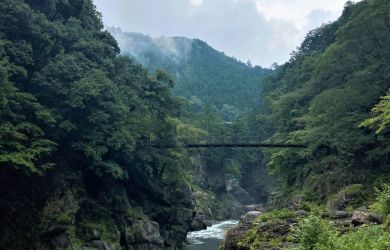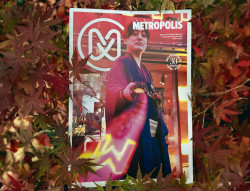
Originally published on metropolis.co.jp on October 2012

Enfant terrible director Sono Sion is known for his gory, violent, torturous and anything-to-shock features since he broke through from the fringes with Jisatsu Club (Suicide Club) in 2002. Sono’s previous two efforts, Tsumetai Nettaigyo (Cold Fish; 2010) and Himizu (2012), are more gnarly entries in his oeuvre. But this work takes the tone of the director’s rarer, quieter pieces like Chanto Tsutaeru (Be Sure to Share; 2009).
Kibou no Kuni is based on the 3/11 nuclear disaster though it is set in the future, with characters often referring to the lessons of Fukushima (read: you can’t trust the government). An earthquake causes a nuclear accident in the fictional prefecture of Nagashima (an amalgamation of Nagasaki and Hiroshima) and neighboring families are caught on either side of the quickly established no-entry zone. Inside the zone, the Suzuki family—father Ken (Denden), mother Meiko (Mariko Tsutsui), son Mitsuru (Yutaka Shimizu) and girlfriend Yoko (Hikari Kajiwara)—are forced into a shelter. The Ono family, just outside the zone, sees the elderly Yasuhiko (Isao Natsuyagi) remain with his senile wife Chieko (Naoko Otani). He sends son Yo (Jun Murakami) and daughter-in-law Izumi (Megumi Kagurazaka) away despite their objections and all the characters suffer the pain of uncertainty and fear.
Somewhat restrained for Sono, the film bounces between a poetic and realistic tone, ultimately settling into one that is overstated and obvious. Not brilliant, but watchable and chilling in light of how real the danger was and is. English title: Land of Hope. (133 min)







